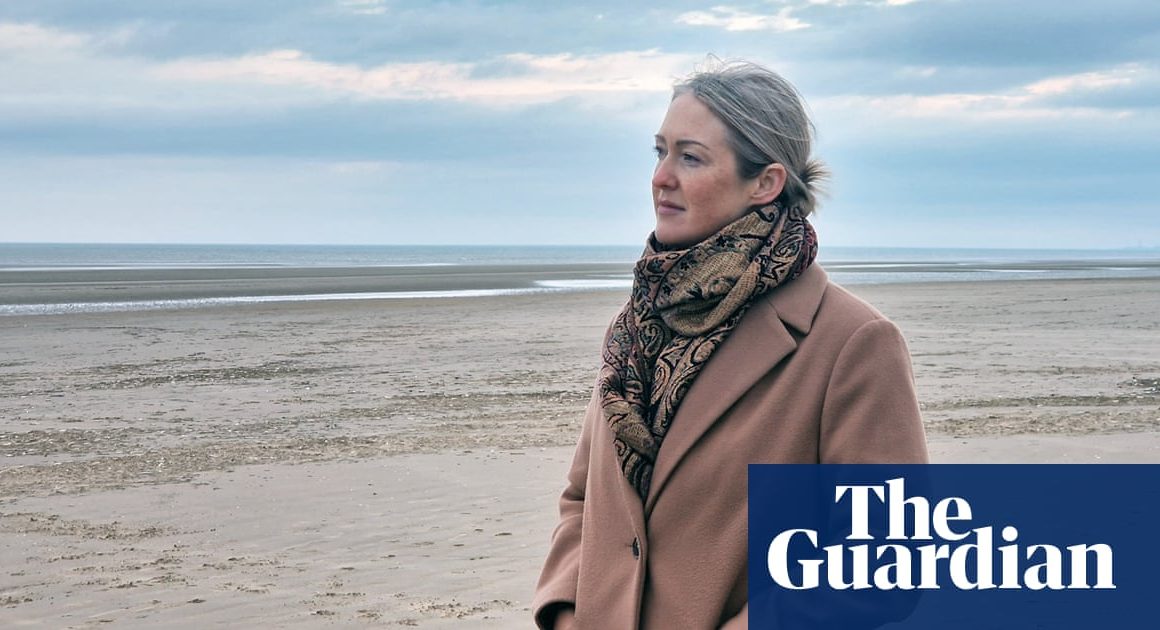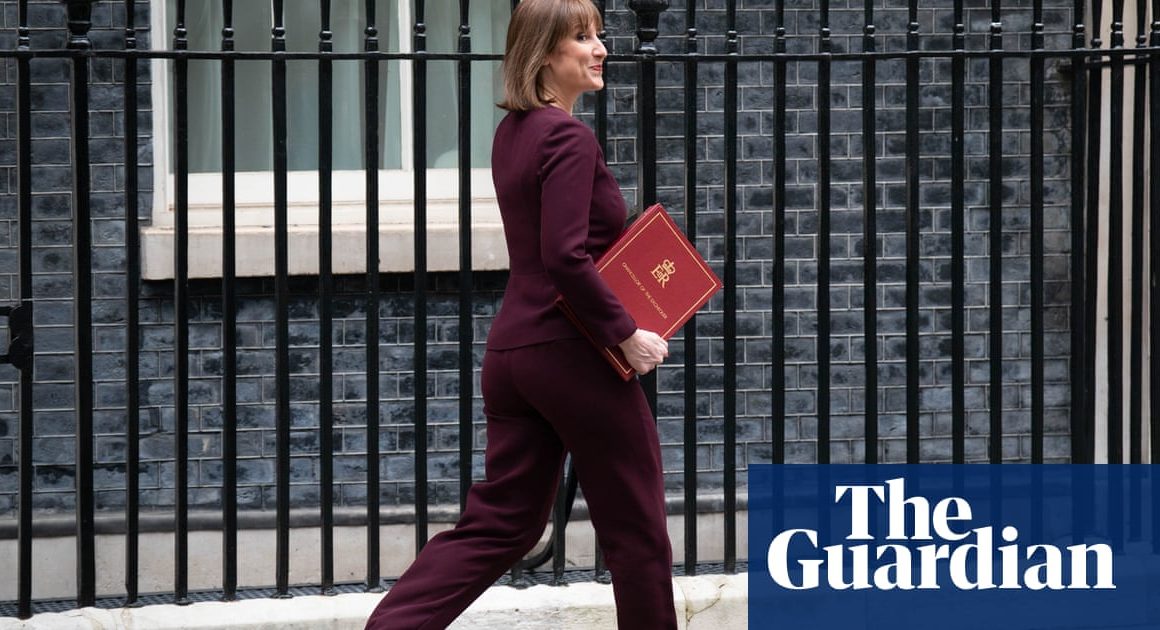Bridget Phillipson to announce rise in student tuition fees for England
Bridget Phillipson, the education secretary, is going to announce a rise in tuition fees for England in the Commons this afternoon.
Sally Weale reports:
University tuition fees in England are to go up next autumn for the first time in eight years, the government will announce this afternoon.
If linked to inflation, it could take fees up to a record £9,500 in October 2025, providing some respite for universities who have been struggling with a deepening financial crisis.
Domestic undergraduate tuition fees in England have been capped at £9,250 since 2017 but have been eroded in value by high inflation, forcing universities to rely on uncapped tuition fees from international students to balance their books.
While any increase would be welcomed by vice-chancellors, it is likely to be deeply unpopular with current and future students, who were once told by the Labour party that tuition fees would be scrapped.
Key events
Nick Hillman, who runs the Higher Policy Education Institute, a thinktank, and who used to work as an adviser to David Willetts when he was a Tory universities minister, says the Tories will be tempted to oppose the tuition fees increase, but that it would be more responsible not to. He posted this on social media.
Big test this pm for the new Shadow Education Team. Will they oppose tuition fee rises, as new oppositions tend to do (before recanting years later as they get closer to power). Or will they be more statesmanlike?
Tuition fees should be scrapped, not increased, says Green party
The Green party says Labour should be abolishing tuition fees, not raising them. In a statement, the Green MP Ellie Chowns said:
Tuition fees have forced universities to prioritize profit over education and put many at risk of bankruptcy, while students face extortionate interest rates- except for those wealthy enough not to need a loan.
They have been a disaster and should be scrapped, not increased.
Martin Lewis, the consumer champion and founder of the MoneySavingExpert website, has put a useful explainer about the tuition fees increase on social media. Here is an extract.
1. Higher tuition fees WON’T change what most pay each year. For most, they’re paid for you by the student loans company and you repay afterwards only if you earn over the threshold. The amount you repay each year (9% over the threshold) solely depends on what you earn not on what you borrow.
2. Increasing tuition fees will only see those who clear the loan in full over the 40yrs pay more. That is generally mid-high to higher earning university leavers only, so the cost of increasing them will generally be born by the more affluent. Most lower and middle earning university leavers will simply pay 9% extra tax above the threshold for 40yrs (and higher tuition fees won’t change that)
3. The rise is tuition fees is likely to be trivial compared to the changes the last govt made for 2023 starters. 2023 starters had their repayment thresholds dropped to £25,000 (from £27,295/yr) and had the time they had to keep repaying for (unless cleared) extended to 40years from 30years.
So these higher annual repayments for longer, increased by over 50% the amount many graduates will eventually have to pay back for going to university. Yet they were almost stealth changes because people can’t intuitively feel the seismic impact.
Changing tuition fees is a more obvious rise, but in reality has far less of an impact on the amount most will repay (though combined with the 2023 changes it does certainly up the cost).
Former MP Beth Winter quits Labour party, saying it’s not socialist and just committed to retaining ‘neoliberal status quo’
Beth Winter, who was a leftwing Labour MP for Cynon Valley from 2019 to 2024, has left the party. In a statement reported by Left Foot Forward, she said:
It has been the greatest honour of my life to serve as the MP for my home, Cynon Valley, elected on the transformative Labour manifesto of 2019. As a proud socialist I have remained committed to that manifesto’s vision for a fairer, more equal, and greener society ‘for the many, not the few’.
Sadly, the Labour party no longer represents that socialist vision and I have, therefore, decided today to cease my membership.
Today’s Labour party is unrecognisable. I cannot in all conscience remain in a political party that is pursuing an authoritarian political agenda whose primary objective is to retain the neoliberal status quo, serve corporate interests and protect the ruling class.
The Social Market Foundation, a centrist thinktank, has said that it expects Bridget Phillipson, the education secretary, to announce an increase in maintenance loans alongside the rise in tuition fees. In a statement Dani Payne, an SMF researcher, said:
The announcement this afternoon for a one-off inflationary rise to tuition fees and maintenance loans is a sensible and necessary step given the financial pressures facing institutions and students, but must come hand-in-hand with greater financial accountability from universities. With over a third of providers reporting deficits, and growing concerns about the potential of institutions collapsing entirely, it is right that the government has stepped in to stabilise the sector.
The increase in maintenance loans is particularly welcome. The government has committed to supporting the aspiration of any person who is academically able to attend university. Unfortunately, for too long disadvantaged young people have either been priced out of higher education, or go to university but have a much thinner experience than their more affluent peers because they have to work hours incompatible with a full-time education.
And Torsten Bell, who until the general election was head of the Resolution Foundation thinktank, has also defended the decision to impose inheritance tax on some farms as robustly as his IFS opposite number, Paul Johnson. (See 2pm.) Bell, who is now a Labour MP and parliamentary private secretary to Pat McFadden, the Cabinet Office minister, posted these on social media this morning.
Not news = those hugely benefitting from a tax exemption, despite never being the intended beneficiaries, are opposed to reform of that tax exemption
It takes a special kind of nonsense speak to claim the way to protect future generations of farmers is to provide a large tax incentive for non-farmers to buy up land, pricing actual would be farmers out. That is exactly what the status quo does
It’s also totally untrue that a farm worth ‘only £1m’ will be affected. A couple passing on a farm + farmhouse worth £3m will remain entirely exempt from inheritance tax
Defending the status quo means defending a system in which those with the very largest estates pay lower tax rates than many who are far less well off. We can’t afford that situation to continue if we’re to repair the public services (almost) everyone relies on
Choices matter. The Tories repeatedly raised income tax (via threshold freezes) in part because they wouldn’t address huge problems with our inheritance/capital gains taxes. Opposing these changes now means cuts to public services or tax rises for those on far lower incomes
I’ve heard several people (gentle nudge @RoryStewartUK) claim it’s the historic norm that all agricultural land is IHT exempt. This isn’t true – it’s a recent shift introduced by Lamont in 1992. Note he said it was meant to be for “working farmers”
It’s hard to overstate the huge risks (economic, social & political) posed by continuing down the path of the last 14ys. The public are losing any faith that the state can deliver the most basic of public services. We’re taking a new approach to start turning that around pic.twitter.com/5VPrIhkjkp
— Torsten Bell (@TorstenBell) November 4, 2024
Commentators are already criticising the government’s decision to increase tuition fees in England.
This is from Sonia Sodha, the Observer’s chief leader writer.
This is from Jason Groves, political editor of the Daily Mail.
And this is from James McEnaney, an education writer for the Herald.
Labour raising tuition fees by inflation looks like the worst of all worlds. It’s nothing like enough to compensate universities for years of frozen funding, but it’s a still a Labour govt increasing the cost of education.
— James McEnaney (@MrMcEnaney) November 4, 2024
Bridget Phillipson, the education secretary, is taking questions in the Commons at 2.30pm. There are no questions on the order paper about tuition fees, but the topic is bound to come up at topical questions at 3.15pm. And Phillipson is due to give a formal Commons statement on the announcement at around 4.15pm.
There is also an urgent question, at 3.30pm, about inheritance tax and farming.
IFS chief dismisses criticism of inheritance tax farm extension as ‘special pleading by extremely wealthy people’
Paul Johnson, the director of the Institute for Fiscal Studies thinktank, has dismissed criticism of the government’s decision to impose inheritance tax on some farms as
In an interview with Times Radio, he said he had “absolutely no sympathy” with people like Jeremy Clarkson and Sir James Dyson (see 10.34am), who have been leading the attack on the government on this. He said.
This is special pleading by some extremely wealthy people.
Very few farms will be affected by this, for example.
And in any case, if you think we should have an inheritance tax – and you may or may not think that – but if we have one, then really you do need to treat most things similarly.
There’s no other country in Europe, or hardly any others, that completely exempt business assets and agricultural assets from inheritance tax.
We never used to. [That] didn’t destroy family farms.
I’m disappointed, actually, to see such special pleading given such prominence.
Bridget Phillipson to announce rise in student tuition fees for England
Bridget Phillipson, the education secretary, is going to announce a rise in tuition fees for England in the Commons this afternoon.
Sally Weale reports:
University tuition fees in England are to go up next autumn for the first time in eight years, the government will announce this afternoon.
If linked to inflation, it could take fees up to a record £9,500 in October 2025, providing some respite for universities who have been struggling with a deepening financial crisis.
Domestic undergraduate tuition fees in England have been capped at £9,250 since 2017 but have been eroded in value by high inflation, forcing universities to rely on uncapped tuition fees from international students to balance their books.
While any increase would be welcomed by vice-chancellors, it is likely to be deeply unpopular with current and future students, who were once told by the Labour party that tuition fees would be scrapped.
Cooper says government will consider changing law so under-16s can be considered as victims of domestic abuse
The age at which victims of domestic abuse are recognised as such by law is to be looked at by the government after a teenager was killed by her ex-boyfriend, PA Media reports.
Holly Newton was 15 when she was murdered in Hexham, Northumberland, by her stalker ex-boyfriend in January 2023. In an interview on the Today programme, Yvette Cooper, the home secretary, was asked about calls from Holly’s parents to change the law so that under-16s can be considered victims of domestic abuse.
Cooper said:
We will particularly, specifically look at this, because we need to make sure that we have got the right ways of recording this kind of violence in teenage relationships …
I have all sympathy with Holly’s family. I can’t imagine what they will have gone through. This was a truly awful case.
Of course, there is domestic abuse in teenage relationships. There is violence within teenage relationships that we have seen increasing, and it really troubles me that we have seen it increasing.
Downing Street has criticised the tweet describing Kemi Badenoch as a white supremacist that was reposted, but then deleted, by the Labour MP Dawn Butler. (See 9.52am.) At the morning lobby briefing the PM’s spokesperson said Keir Starmer thought this comment was “clearly wrong”.
Rachel Keenan
Anas Sarwar, Scotland’s Labour leader, has said that, in electing Kemi Badenoch as the new Conservative party leader, the Tories do not “recognise the damages done” over the past 14 years. He said:
It’s not recognised the dire consequence of pushing to the right and the politics of division and decline.
Sarwar also said he didn’t think people in Scotland or the UK would “warm” to Badenoch and that electing her was “bad for the country”. He told the Guardian:
Having an opposition party that gets more and more extreme that seeks to divide our communities further and further, is not a good force for positive outcome from politics.

Libby Brooks
Scottish Tory leader Russell Findlay has described Kemi Badenoch as “a woman of great integrity” as he revealed he had voted for her in the recent Tory leadership contest.
Findlay, himself newly elected as the leader of the party in Scotland, told BBC Radio Scotland:
I really admire the fact she isn’t afraid to say it how she sees it, and if that sometimes upsets people, so be it.
He said it was “healthy” that Badenoch had recognised the mistakes of Partygate and Brexit.
She has very quickly identified where things have gone wrong and how we have a responsibility and a golden opportunity in [the 2026 Scottish parliament elections] to put them right.
Asked about recent polling which suggested that the Scottish Tories were on track to lose their position as the official opposition in Holyrood at the 2026 election Findlay denied it was a “fait accompli”.
It’s my job, and it’s my colleagues’ job to persuade the people of Scotland that we are on their side and fight for every single vote.
After Badenoch was highly critical of devolution in a speech at Conservative party. Findlay said:
When I look around at Holyrood, I do wonder why so much time is spent on fringe issues, when what really matters to people is jobs, the economy, housing, the NHS, education. All of these things in a quarter of a century of devolution have got worse by any measure.
Jasper Jolly and Peter Walker published a good explainer on farms and inheritance tax last week. They pointed out that, although the rules are changing so that inheritance tax will kick in after £1m, taking other tax allowances into account, farming families could pass on a home worth £3m without being liable for inheritance tax. They explain:
Pre-budget analysis by the Centre for the Analysis of Taxation (CenTax) suggested that only 200 estates out of 1,300 a year between 2018 and 2020 claimed more than £1m in relief each year. Those 200 estates – by definition among the wealthiest in Britain – reaped 64% of all the agricultural relief.
The updated relief can in fact be even more generous for true family farms than the £1m headline. A married couple owning a farm together can split it in two, meaning it qualifies for £2m of agricultural property relief, plus another £500,000 for each partner if a property is involved. That means a farm worth £3m might pay zero inheritance tax, said Arun Advani, associate professor of economics at the University of Warwick and a director of CenTax.
Even farms worth £5m might in practice only pay inheritance tax of less than 1% a year, because they will be allowed to spread the cost over 10 years.
The full article is here.
Laura Trott appointed new shadow education secretary

Peter Walker
Laura Trott is the new shadow education secretary, in the first policy-based frontbench appointment under Kemi Badenoch.
While the bulk of her appointments will be made later, before tomorrow morning’s shadow cabinet meeting, Trott will appear for the Tories at education questions in the Commons at 2.30pm.
Joining her on the front bench will be Neil O’Brien, who will be number two in the education team.
Trott replaces Damian Hinds, who has been shadow education secretary since the general election. Hinds was education secretary between 2018 and 2019, and later served in government in more junior ministerial roles.
Badenoch has already announced her chief whip, Rebecca Harris, and two party co-chairs, Nigel Huddlestone and Dominic Johnson. (See 9.38am.)
Farmers have never been as angry as they are about inheritance tax change, and many ‘want to be militant’, says NFU leader
Tom Bradshaw, president of the National Farmers’ Union, has said that he has never known farmers to be as angry as they are about the changes to inheritance tax rules announced in the budget. And many “want to be militant”, he said.
He also said he does not accept government figures about the number of farming families that will be affected by the decision to apply inheritance tax to some farms.
He was speaking after a meeting with Steve Reed, the environment secretary, and James Murray, a Treasury minister, about the issue.
Last week the Treasury published a paper with figures purporting to show that 73% of farms would not be covered by the decision to apply inheritance tax to farms worth more than £1m.
But, speaking to PA Media after his meeting, Bradshaw said:
So, the Treasury is saying only 27% of farms will be within scope of these changes. [Defra, the Department for Environment, Food and Rural Affairs’] own figures suggest that two-thirds of farms will be in scope.
How they can have that wide a discrepancy within government is quite unbelievable.
Bradshaw said Reed ruled out a change to the inheritance tax rules for farms before the election, and he said the decision was “completely unfair”. He went on:
I have never seen the weight of support, the strength of feeling and anger that there is in this industry today. Many of them want to be militant.
Now we are not encouraging that in any way shape or form but government need to understand that there is a real strength of feeling behind what this change means for the future of family farming in this country.
Bradshaw also said today’s meeting did not resolve the issue. “We’ll wait to hear from government and Treasury and see if we can get to a resolution,” he added.
Badenoch reportedly tells CCHQ staff they can win next election and they should try innovating with new ways of working
Kemi Badenoch has told staff at the Conservative party’s HQ that they should experiment with doing things in new ways, according to the Guido Fawkes website. The website, which has good links with CCHQ, says Badenoch told staff that they could win the next election, that they should focus on principles, not policies (“freedom of speech, freedom of association, free enterprise, personal responsibility – what distinguishes us from all the parties of the left who think more government is the answer to everything”) and that they should be willing to innovate.
Don’t have to do things they way they’ve always been done. Time to try something different. Let your creative juices flow.
Keir Starmer ended his speech to the Interpol general assembly by saying that, if together they could tackle the problem of people smuggling, that would be as important as what was achived at the Cop26 climate summit in Glasgow. He said:
It’s your collective efforts that bring organised criminals to justice wherever they seek to hide, and it’s your leadership today that can help make a decisive breakthrough against this vile trade in human life.
Because if together we could win this war against the people smugglers, then this gathering will have achieved a victory for humanity every bit as significant as the Glasgow climate pact, because you will have helped to smash the gangs, secure our borders and save countless lives.












